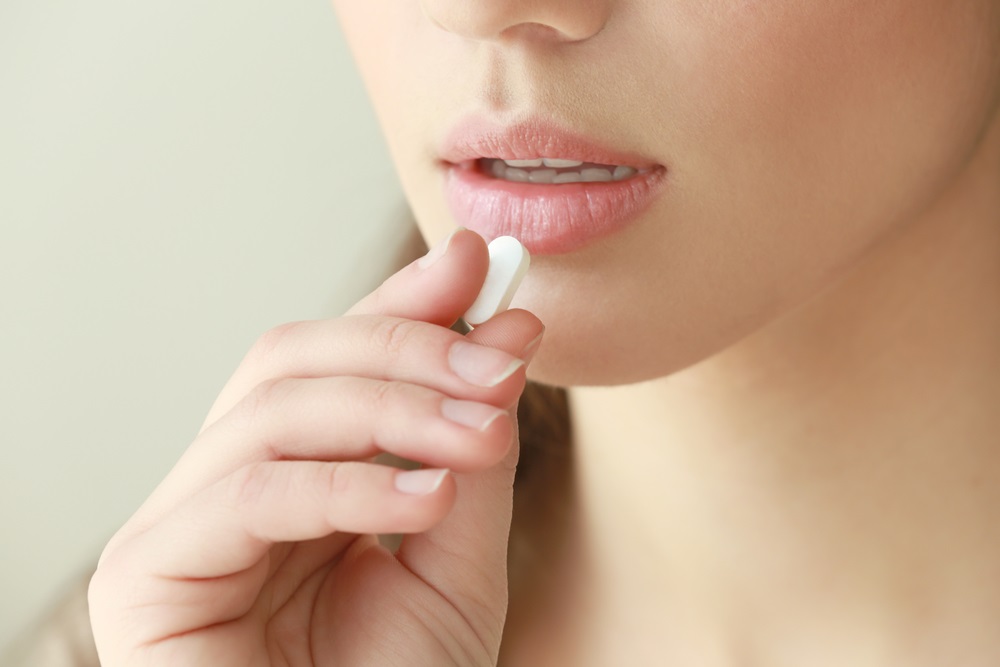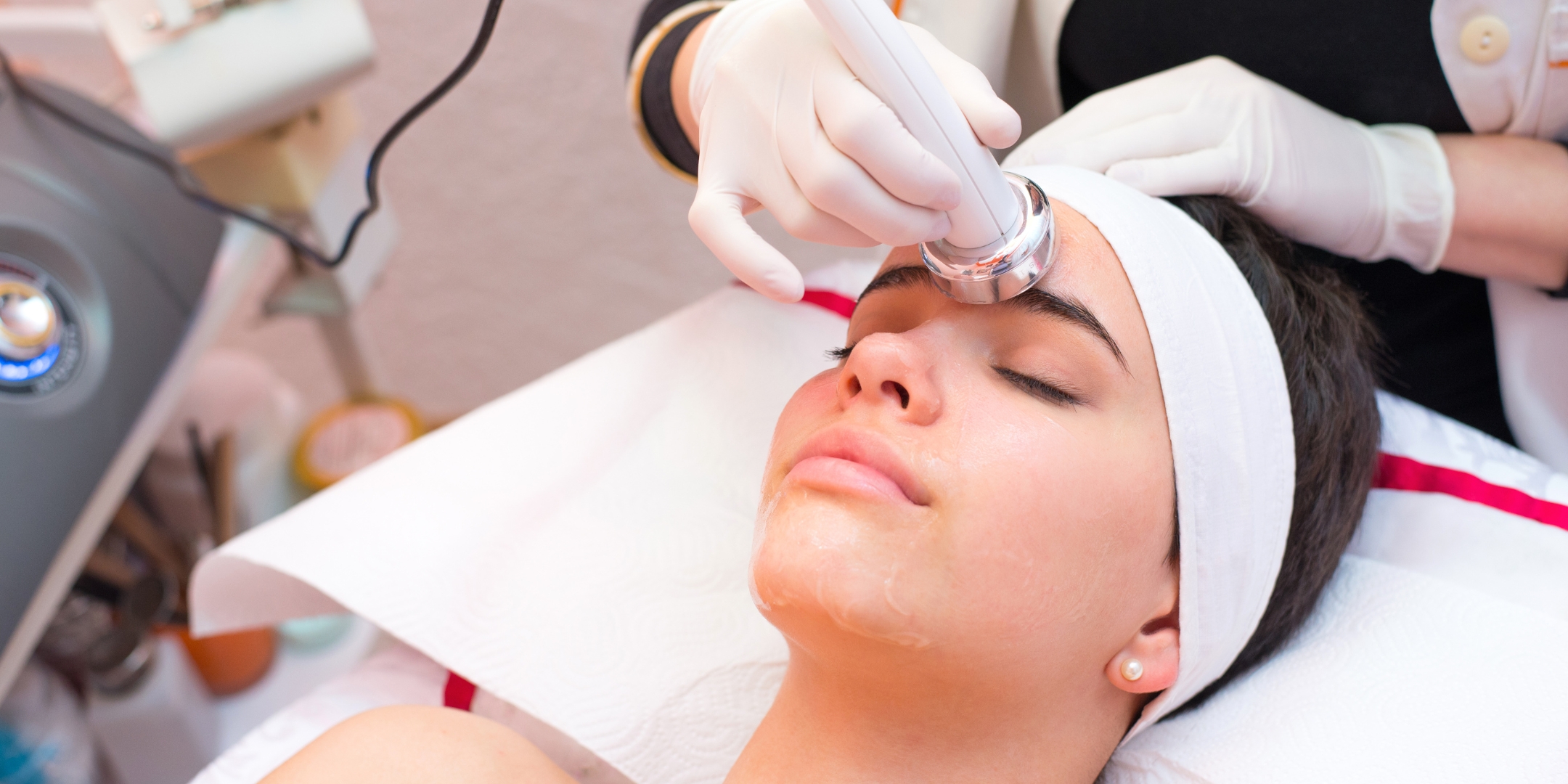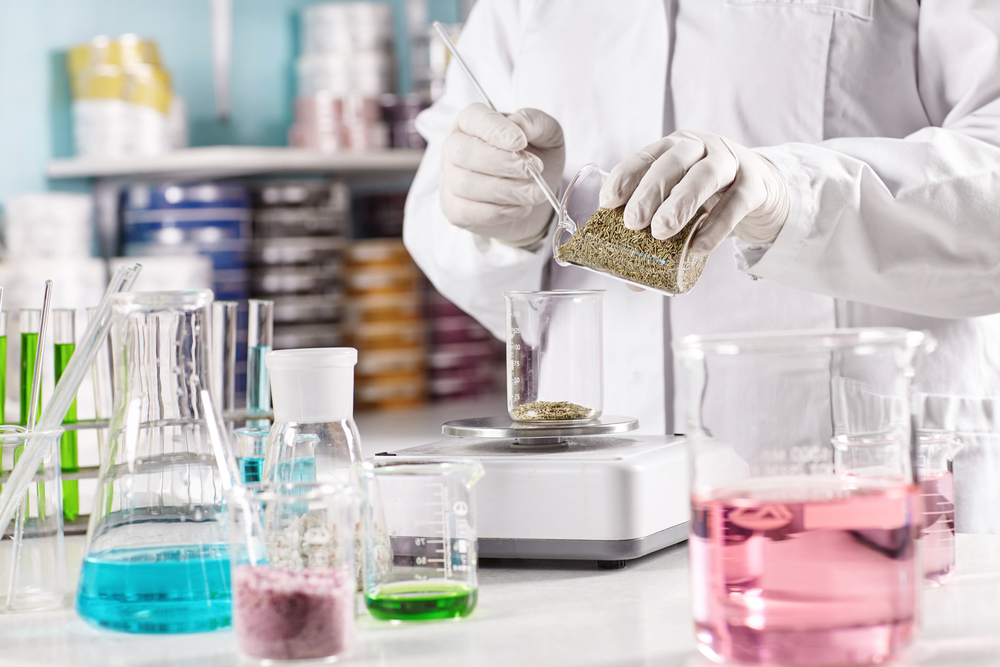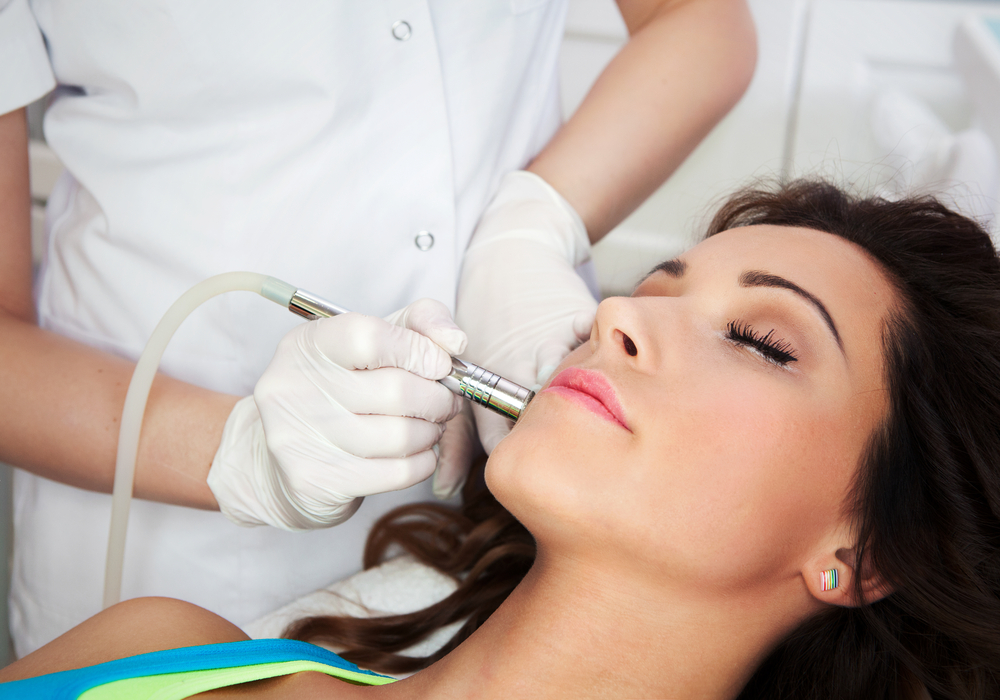- Hyaluronic acid (HA) is found in a wide range of forms, such as injections, topical skin care products and dietary supplements.
- The naturally occurring compound plays an important role in the body, helping to lubricate joints, smooth away wrinkles and replenish dry skin.
- There is evidence to suggest that hyaluronic acid intake promotes joint and skin health, although dermatologists are still in debate over its effectiveness in pill form.
These days, it seems like there’s a pill for everything, from oral sun protection pills to supplements that make your hair grow faster.
Oral administration of certain compounds and medications has its benefits, but can it help keep us stay young, too? In the never-ending search for the fountain of youth, experts keep coming back to one key ingredient: hyaluronic acid.
What Is Hyaluronic Acid?
Hyaluronic acid (HA) is a naturally occurring compound composed of n-acetyl-glucosamine and D-glucuronic acid. Hyaluronic acid acts as a natural humectant to keep your joints healthy and your skin glowing.
Roughly half of the body’s supply of hyaluronic acid is found in the skin, where it is an important agent in preventing dryness, loss of elasticity, wrinkles, and other age-related skin issues.
Additionally, hylauronic acid in the body acts as a protective coating, helping to provide the cushioning and lubrication needed to ensure joint health.
Why HA Is So Important: What the Experts Say
“Hyaluronic acid retains water up to 1,000 times its weight in one molecule,” says New York dermatologist Dr. Suzanne Friedler. “Due to this incredible ability to attract water, it is able to lubricate the joints, reduce dry eyes, and plump and hydrate the skin. In addition to improving skin hydration, products such as serums and creams containing HA also have the ability to decrease wrinkles, improve elasticity and reduce oxidative damage to the skin from sun exposure.”
Boca Raton, FL dermatologist Dr. Jeffrey Fromowitz concurs: “Hyaluronic acid is a naturally occurring molecule in the skin that binds water and adds hydration to the skin, keeping it looking supple and dewy,” he says.
As such, hyaluronic acid has become a mainstay in chemical peels, moisturizers, injectables, masks, and serums — particularly those with anti-aging properties.
NYC-based dermatologist Dr. Debra Jaliman, author of Skin Rules: Trade Secrets from a Top New York Dermatologist, gushes over hyaluronic acid. “It’s super hydrating and has anti-aging properties,” she says. “When used in peels and cleansers, it helps to retain the skin’s moisture.”
Besides the measurable benefits to the skin, HA can also aid in conditions such as arthritis and knee osteoarthritis because it helps build up resilience of the cartilage and resist compression. The acid is found in high concentrations in the synovial fluid–which is responsible for lubricating the joints–and may relieve some pain for people who have connective tissue disorders or recurring issues with the joints, eyes or heart valves.
Additionally, the compound may be beneficial in wound healing, rheumatoid arthritis and everyday joint pain.
Different Types and Forms of Hyaluronic Acid
Hyaluronic acid comes in many forms. It can be introduced into the body through dietary supplements, topical products, injections, and even food.
Some HA supplements are branded as “low molecular weight hyaluronic acid.” The molecular weight of the hyaluronic acid in any given supplement correlates to the mass of the molecules. Whether or not a low or high molecular weight affects the efficacy of the product is still debated and the subject of rigorous clinical trials.
Research currently indicates that high molecular weight HA is better for wound-healing, whereas low molecular weight HA may be better for treating inflammation and scarring.
“Topical HA products are great adjutants, but not all are created equal,” Dr. Fromowitz explains. “If the product is not expertly manufactured, the particles’ size will be too large and they will not penetrate through the outer layers of the skin.”
Also keep in mind that product manufacturers may use either natural (usually derived from rooster or chicken combs) or synthetic hyaluronic acid in their products. Since the natural versions are derived from animals, they are not considered vegan. However, “synthetic” versions, often grown through fermentation, can be vegan.
>> Learn more about the 12 best hyaluronic acid serums, moisturizers, and creams for your face.
Current Studies: Do HA Supplements Actually Work?
Experts remain divided on whether oral hyaluronic acid supplements are as effective as topical creams or injections.
One placebo-controlled study performed by a group of Japanese researchers in 2012 showed that oral administration of hyaluronic acid improved osteoarthritis in knee joints over a period of 12 months, when combined with quadriceps-strengthening exercises. Study participants took 200 milligrams of HA once a day. The researchers noted that results were more pronounced in subjects who were aged 70 or younger.
Another more recent study concluded that hyaluronic acid supplements shows “mild efficacy” and no side effects when being used to treat knee pain. However, the study points out that direct hyaluronic acid injections in the knee may be more effective than ingested HA.
A study of the effects of HA on the skin showed that when ingested, it may have the same ability to moisturize dry skin as its topical counterparts. Researchers found that HA supplements had the ability to distribute this important compound to the skin as well as other parts of the body.
There is also some evidence to suggest that oral hyaluronic acid may help smooth away wrinkles. A 2017 study published in Clinical, Cosmetic and Investigational Dermatology found that those who took 120 milligrams of HA once a day showed an improvement in the appearance of crow’s feet after 12 weeks.
However, not all doctors believe that oral HA can indeed migrate to the relevant connective tissues.
“Oral HA products sound like a miracle fountain of youth but, unfortunately, practical experience has not shown it to be true. The products end up getting broken down by the gastric acid and have little systemic benefit,” says Dr. Fromowitz.
On the other hand, Dr. Friedler says that there is promising evidence to show that oral intake may be beneficial to the joints.
“Oral hyaluronic acid has been shown to relieve symptoms of osteoarthritis and improve joint health,” she says. “Some studies suggest that oral HA may also have an effect on reducing wrinkles. More research is needed to see if these results hold up, but it is unlikely that the results from oral HA will be as dramatic as those from HA serums or injections.”
Are Hyaluronic Acid Pills Safe?
HA is considered safe for use by most people: it has been used as a food additive for many years in Korea and Japan, and no adverse events have been caused by HA in countries where it is widely sold, including the United States, Canada, Italy and Belgium.
There have also been several studies showing that HA does not cause toxicity in regular or single-dose applications since it is metabolized and released naturally through urine without accumulating in the body or causing any toxic buildup, even following regular intake.
It is still vital that you consult your physician before adding any new supplements to your regimen. Approval for safety and efficacy of oral supplements is not required by the U.S. Food and Drug Administration (FDA), and hyaluronic acid is often coupled with other ingredients or may be administered in a way that causes certain side effects (e.g. injections).
Is It Worth a Try?
“Oral hyaluronic acid for giving a similar hydration internally is an interesting idea, however, it’s very nonspecific,” says Dr. Kristine Brecht of Burien, WA. “For now, injections and topicals with hyaluronic acid are the way to go for a little youthful lift!”
So long as it’s approved by your doctor, there is no harm in giving HA pills a try. There’s not yet enough evidence to prove that it’s the veritable fountain of youth that it is claimed to be, but there is promising research that indicates that taking hyaluronic acid orally may be a two-for-one deal–working to help you feel and look your best at the same time.









